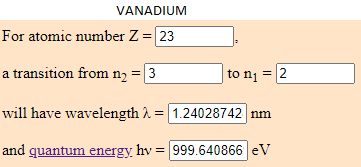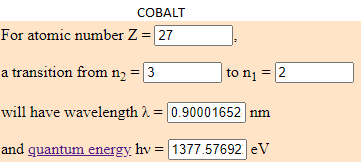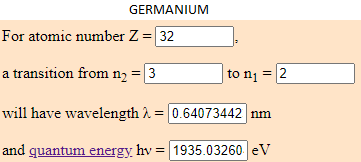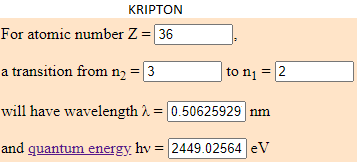I have analyzed the supernova remnant Cas A. It lies at an approximate distance of 11,000 light years from Earth and has a diameter of about 10 light years.
This is its energy spectrum from JS9 with its most importants energy peaks.
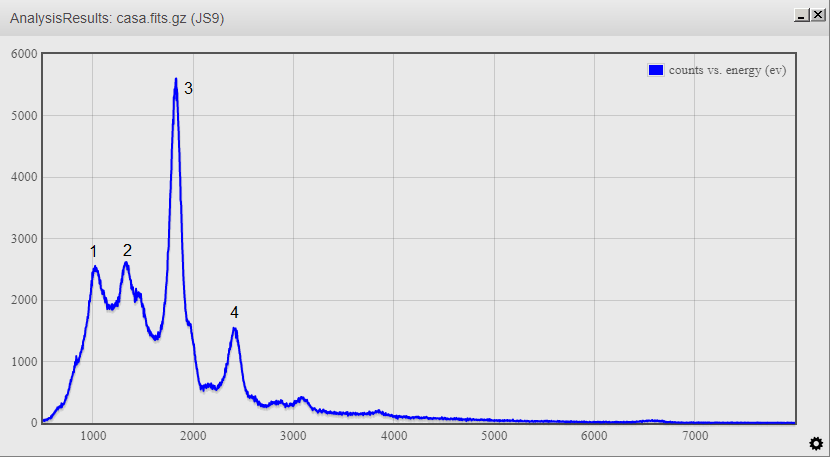
Then, I have calculated each peak's percentatge and find out which elements they contain.
I have used this formula:
 |
|
Here are my results:
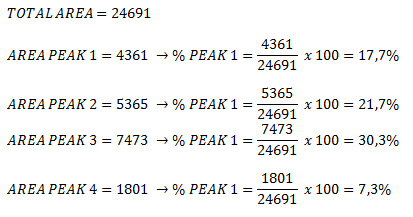 |
|
This supernova has:
- 17,7% of Vanadium (V) which energy is 999.6408 eV.
- 21,7% of Cobalt (Co) which energy is 1377.5769 eV.
- 30,3% of Germanium (Ge) which energy is 1935.0326 eV.
- 7,3% of Kripton (Kr) which energy is 2449.0256 eV.
COMPARISON
I have compared my results with other scientific results. According to the scientific article Newly Synthesized Elements and Pristine Dust in the Cassiopeia A Supernova Remnant by R. G. Arendt et al the supernova Cas A contains oxigen, neon, silicon, sulfur and argon.
- The chemical elements that I have obtain doesn't match to the results other astronomers got.
- Based on my investigation, this galaxy is form of vanadium, cobalt, germanium and kripton.
- What I have done is to find the eV of the tallest peaks of the JS9 energy spectrum and discover what element corresponds to that enery.
|
|
|
|
|
I have calculated the electronvolt of this elements with the transition predetermined in this web (from the cap 3 to the 2). The atoms to jump from this capes have to be in a room temperature. Depending to the temperatura, the element can have different quantum energy. What is the same, a eV number can be from different elements if they are moving arround differents capes.
It can be possible that the atoms are not moving from the capes I have work with and this might be the reason why my results does not match with the scientifics results.
Another possibilty is that the element mentioned in the scientific have a smaller quantum energy that the ones I got so it can be possible that the part of the galaxy I have worked with has more energy that the part analysed by the scientifics.
